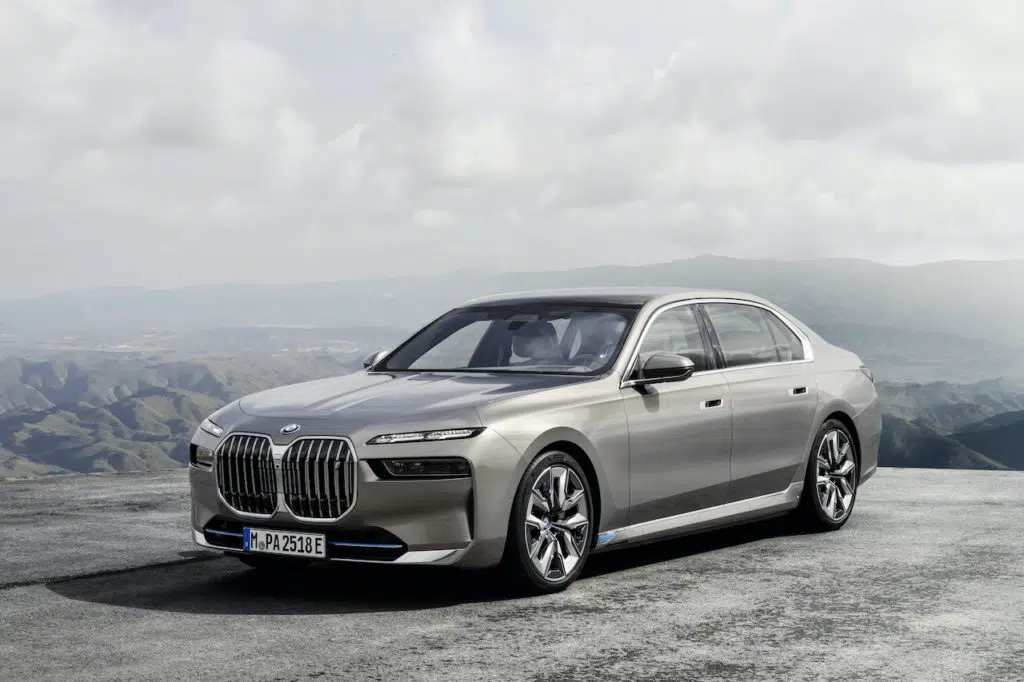BMW i7: all-electric luxury with recycled materials
Now it's all happening in quick succession: after the pioneering work with the i3, BMW took a long time to present further all-electric models, but now they are coming every six months. After the i4, which caused a sensation at the end of last year, BMW is now following up with the i7.
The BMW 7 Series has just been completely redeveloped and positioned as the flagship luxury sedan. The classic roof shape of the sedan offers a lot of space in the rear, which is why the car is also popular with chauffeurs. For the first time, sustainable materials can also be found in the interior: the otherwise obligatory leather seats can be optionally ordered upholstered in a blend of merino/wool cashmere, and the floor coverings are made of recycled PET bottles. "We are already clearly noticing in sales that environmental aspects are becoming increasingly important for our customers," explains Teuchert.
Those who are not yet confident about electric mobility in this segment can rely on proven petrol and diesel engines in the 7 Series. However, Teuchert assumes that the share of all-electric i7s will be very high in Germany and Europe. With the 101-kilowatt-hour battery and ranges between 590 and 625 kilometres, range anxiety is also not an issue with the i7. Moreover, 195 kilowatts can be recharged at DC charging stations. The entry price is 135,900 euros.
Teuchert mourns the i3 a little, BMW stopped production in June. At the same time, however, he is looking forward to the new iX1, a "fantastic electric car in the compact class". Teuchert explains the fact that BMW's now cheapest electric car costs more than 55,000 euros (the i3's prices started at 39,000 euros) with a longer range, more space and thus higher usability, which customers also wanted. As an alternative, he points to the all-electric Mini Countryman, which will soon be in the shops.
BMW currently offers all-electric drive systems in six model series, a total of ten models. Next year, two more will be added. Together with the numerous plug-in hybrid models, BMW's range of electrified cars has grown rapidly in recent years. By 2030, at least half of all BMW vehicles worldwide will be sold with electric drive. 2025 will see the launch of the "New Class", a platform just for electric cars, in which the circular economy will also play a prominent role.
